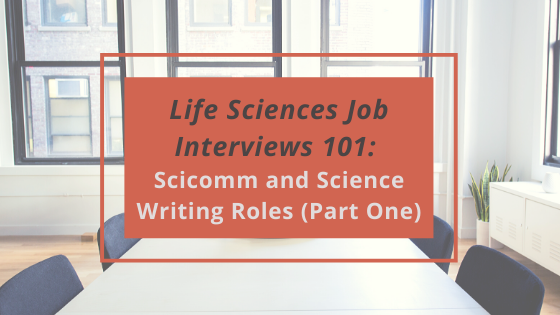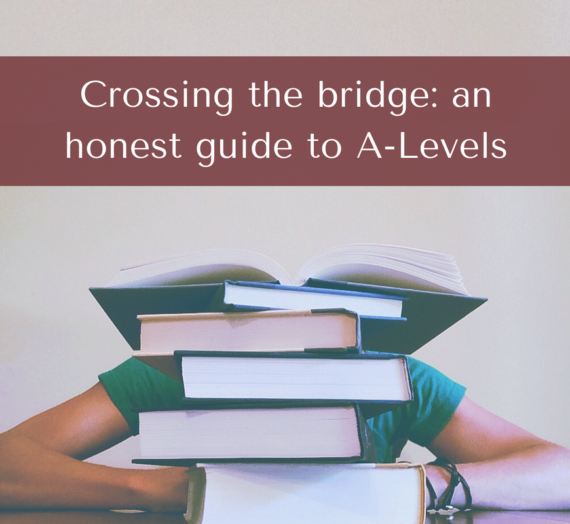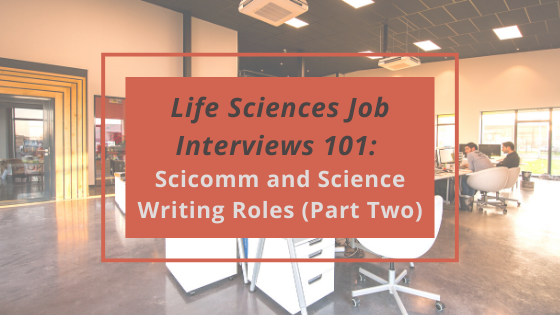Welcome to our new series of posts here at Seeking Science! Here, we aim to give you some insights, based on our own personal experiences, of interviewing for various science-related jobs! In this edition, Roisin describes her experiences of interviewing for science writing and scicomm jobs!
The field of science communication and science writing is really taking off at the moment; industries are starting to realise how important it is to communicate scientific ideas to a variety of audiences; whether for the public or as part of medical training and pharmaceutical business. So, in many ways, it’s a great time to be applying for these sorts of jobs, on the other hand, it can also make getting to the interview stage harder, so it’s important to do everything you can to prepare to succeed.
Lets first examine some the job titles you might be applying for:
- Science communication officer/assistant
- Scientific Writer
- Scientific Editor/Editorial Assistant
- Medical Writer/Associate Medical Writer (for more junior roles)
- Press Officer/Press Office Intern/Assistant
- Social Media Officer/Assistant
These are some of the more common ones you’ll see advertised, but always make sure to read the job description thoroughly, as many roles that involve writing or communication may not be explicitly advertised as such.
Steps of a science writing interview
There are usually several steps involved in a science writing job interview. Often, you’ll have to pass an initial telephone screen, before being asked to complete a writing exercise, and then finally moving on to the face-to-face interview. There can be variations on this theme too, you might be asked to do the writing exercise at the interview location before the interview starts.
- The telephone interview
This can actually be very daunting because you and the interview cannot see each other, they don’t know that you’re nodding along enthusiastically, and you can’t read clues in their face to see what they really think of you. But it does give you a bit of confidence before facing an in-person interview and can be a good chance to practice your interview skills in a relatively safe setting. Don’t assume that you don’t need to prepare just because it’s over the phone; make sure to do your research like you would for an in-person interview.
The most important thing to remember is that the interviewer can’t see you – so if you’re enthusiastically using your hands to gesture things, it will make no difference. You can, however, change how your voice comes across by smiling as you speak. It really does make a difference. Try it now.
The phone call itself probably won’t take more than 20-30 minutes, and shouldn’t consist of too many scary questions. Expect questions such as:
- ‘Tell me about your background”
- “Why are you interested in this field/this particular role?”
- “What do you know about this field/our company?”
The purpose of this stage of the process is more for the recruitment team to get to know you and judge whether you are actually enthusiastic about the job, or whether you just clicked ‘apply’ without actually bothering to research the company, so, preparation and enthusiasm are key to passing a phone screen.
It’s also important to ask the interviewer some questions at the end of the call, something as simple as asking what the next steps in the process are will do, as it shows that you’re engaged and wanting to progress.
Questions from our followers:
What qualifications do you need for this sort of job?
Most employers will expect an undergraduate degree in the life sciences at a minimum, some require an MSc or even a Ph.D., but many are flexible and will take on junior writers with less academic experience.
How can I get some work experience in science communication?
This isn’t always easy but remember, any writing experience is good writing experience! If you’ve completed a degree you will have already written lots of essays and often, a dissertation as well, so make sure to emphasise writing skills gained from your academic career in your CV. If you want to gain more writing experience, reach out to online science websites and ask if you can guest write for them (side note, we’re always happy to have guest writers!). If you can get involved in any outreach events that your university might be running, or external events like Soapbox Science, these are also great non-writing communication experiences too.
Is the process fun, or just as tedious as any other job application?
There are aspects that make the process different from other applications, certainly, but ‘fun’ might be too strong a word. Getting to do the writing tests can be quite enjoyable once you stop panicking and get into it, if nothing else, it’s a learning experience!
Wondering what the best-paid life science jobs are? Check out this new post from our friend at The Catalyst In Me for a breakdown of salaries in bioscience jobs!
2. The writing exercise
For most scicomm jobs, you will need to complete a test to assess your writing and/or editorial skills, depending on the role you’re applying for. This might be sent to you for completion prior to an in-person interview, or you might be required to do it on the day of the interview.
It can be easy to panic and get stressed out about these tests, but remember, the employers are not expecting your answers to be perfect, rather, it’s to give them an idea of how you write, how well you work under pressure, and, most importantly, whether you actually decide to complete it or not.
Here are some tips to bear in mind when facing the dreaded writing test:
- Take time to do your research: If you are doing an at-home writing test, there’s no excuse to avoid this step. Often your assignment will be based upon a research paper, so the key thing is to ACTUALLY READ THE PAPER. It can help to print it out and make notes on the physical paper. If you have time, do some background reading on the subject, if it’s an area that you’re not already familiar with, YouTube can be a great resource for bite-sized introductions to the field (just be careful not to get distracted!)
- If it’s an on-the-day assessment, there’s less you can do in the way of preparation, but there are still some things you can do. You can research what the company does and the fields it specialises in, i.e., if it’s an ecological journal, you’ll know you can expect the assessment to be based in ecology, so take time to familiarise yourself with some of the latest research in the field and get a feeling for how papers are laid out, in case you find yourself having to dissect one in your writing test.
- You may find yourself doing an editorial or proofreading test on interview day, in which case it can be helpful to brush up on your grammar basics, and if possible, familiarise yourself with the house style of the company, i.e., whether they use American or British English, their stance on the Oxford comma, etc. These rules should be provided to you on the day, but it won’t hurt to have a little head start.




